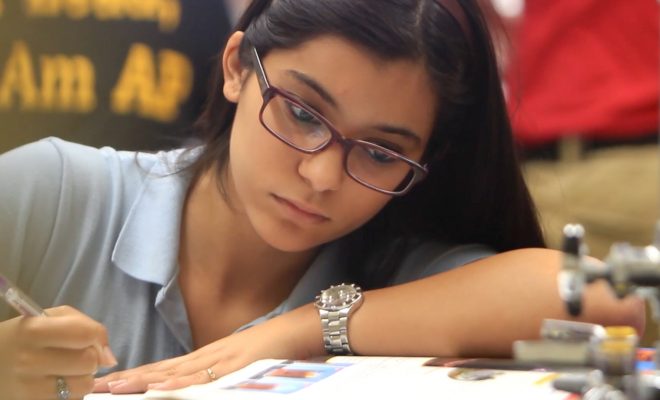Reforming K-12 Education: How the Activists are Doing It

By Matthew Lynch
Activism when it comes to public K-12 education is flourishing. Laws regarding K-12 education are no longer simply handed down and enforced without pushback – student, parents, teachers and outside activists have a larger voice than ever when it comes to the decisions impacting the future of their public schools.
After some thought, I came up with the most impactful things (in no particular order) that education activists have done in the past few years when it comes to K-12 education:
Student-driven change. When it comes to the paths of their educations, K-12 public school students are standing up for their rights more than ever before and empowering positive changes in their learning experiences. In April, over 100 Chicago Public Schools students made news when they skipped their standardized testing to protest the tests instead. Speaking to the press, one CPS student said that the protest was designed to draw attention to the fact that “standardized testing should not decide the future of our schools and students.” Student-led zombie flash mobs took place in front of the Philadelphia School District headquarters to oppose the closing of public schools in the city. Hoards of students in other cities like Denver, Providence and Philadelphia followed suit and spoke out against the advance of high-stakes testing and school closing. They rallied together and marched relentlessly to prove their strong dislike against standardized testing – and the belief the effects are not a true measure of success in the real world. While there may have been some parental encouragement behind the scenes, these students appeared to act alone in their pursuit of a better public school learning experience.
Parents as reformers. In California, the parent-led “trigger movement” made waves as parents demanded more from failing public schools. Dessert Springs Elementary School in Adelanto is an example of a school that was transformed from a consistently failing school (students had reading scores in the bottom 10 percent of the state) to a public charter that better served its student body – all because parents took a stand and demanded the change. The Lone Star State had some big news this year when a coalition led by parents was successful in petitioning the state to reduce by two-thirds the number of tests required to graduate high school. In 2011, the state required at least 15 high-stakes tests on students prior to earning their diploma. Two years of hard work later, the Texas legislature passed an education bill reducing the number of tests to five.
Activists stepping up. During 2013, civil rights advocates found an audience with Secretary of Education Arne Duncan. In January, these public-school supporters gathered in DC to discuss their grievances to the Department of Education. The Journey for Justice came as Chicago was on the cusp of closing around 50 schools, and New York and Philadelphia had voted to close more than 20 each. These activists had every right to speak up – research shows that the closing of public schools in urban areas has the biggest negative effect on Latino and Black students. Mass school closures often shake up communicates and disrupt children’s learning, among other effects on displaced students. Perhaps the biggest public school activism success story for 2013 was the teacher union-led Scrap the Map in Seattle. After months of protesting Washington’s mandatory MAP standardized testing at Garfield High School, a decision was made to make the test optional for students throughout the state. In 2013, public school activists came out en masse and took to their local, state and federal legislators to protest detrimental closings and other public school legislation.
Pushing for increased funding. In 2013, activists were vocal about the need for stronger programs in science, technology, engineering and math. Thankfully, President Obama listened. His 2014 budget includes $3.1 billion in investments in federal STEM programs – an increase of nearly 7 percent over the budget of just two years ago. Of that total, $80 million is intended to recruit 100,000 well-qualified educators and another $35 million is earmarked for the launch of a pilot STEM Master Teacher Corps. The rest of the money will go to supporting undergraduate STEM education programs and investment in breakthrough research on the way STEM subjects are best taught to modern learners. At the urging of advisors and activists, the president realized that demand for STEM-related jobs is there and the money allocated to STEM learning initiatives will better prepare today’s students for the worldwide workforce.
Supporting Race to the Top. Over the last 2 years, education activists have continued to support the president’s incentive-based Race to the Top program, which was launched in 2012 and it rewards states that are willing to reform their education models to best adapt to modern student learning needs. The Race to the Top initiative has raised standards for learning to reflect a push toward college and career readiness. Each year, the program gives even more in federal funding to states that prepare plans for reforming their student offerings and 2013 was a big year for it. To date, the program has allocated more than $4 billion among 19 states that have shared well-developed plans to improve learning standards, teacher effectiveness and struggling schools. The states that have been granted the funds represent 42 percent of all low-income students in the nation – making the initiative an effective way to close the achievement gap and equalize funding in areas where schools may struggle based on their geographical location.
Lobbying for college affordability. College affordability activists urged the president to make earning a college education more affordable for all Americans and convinced him that this will impact future K-12 classrooms. In August 2013, the President announced plans to assign a ratings systems to colleges by the 2015 school year that takes items like tuition, graduation rate, debt and earnings ratios of graduates and percentage of low-income students who attend into consideration. The grand plan? To base the amount of federal financial aid colleges receive on the rankings system by 2018. The overall principle is not to call out colleges but rather to make them more accountable to students, and to ensure that every American with college degree aspirations has the actual means to make it happen. Long term, this will impact the quality of teachers in the classrooms, particularly in urban settings where research has shown that the most effective teachers are generally those who come from the same background. More lower-income college students earning degrees will have a positive impact on the entire education system and the college scorecard initiative is a step in that direction.
What would you add to my list?
photo credit: Steve Rhodes via photopin cc
Click here to read all our posts concerning the Achievement Gap.




